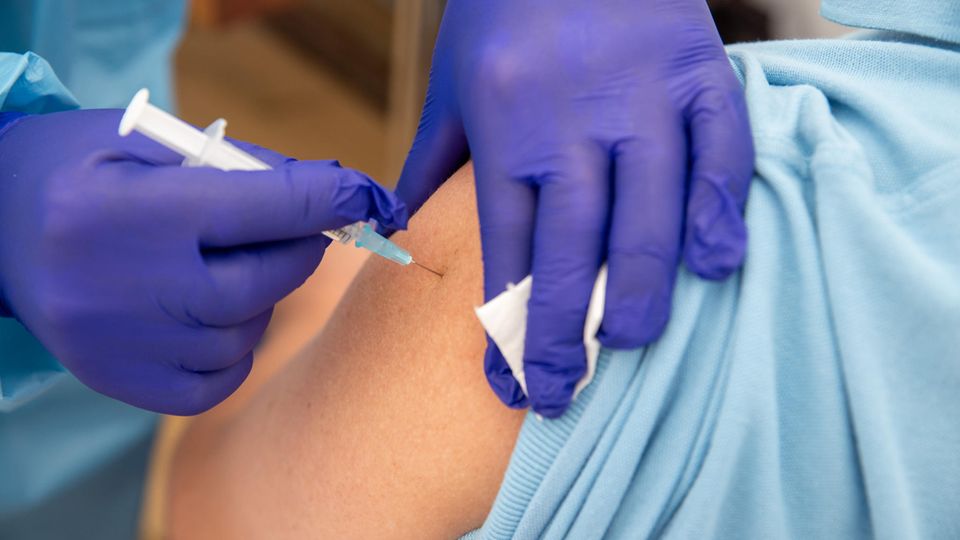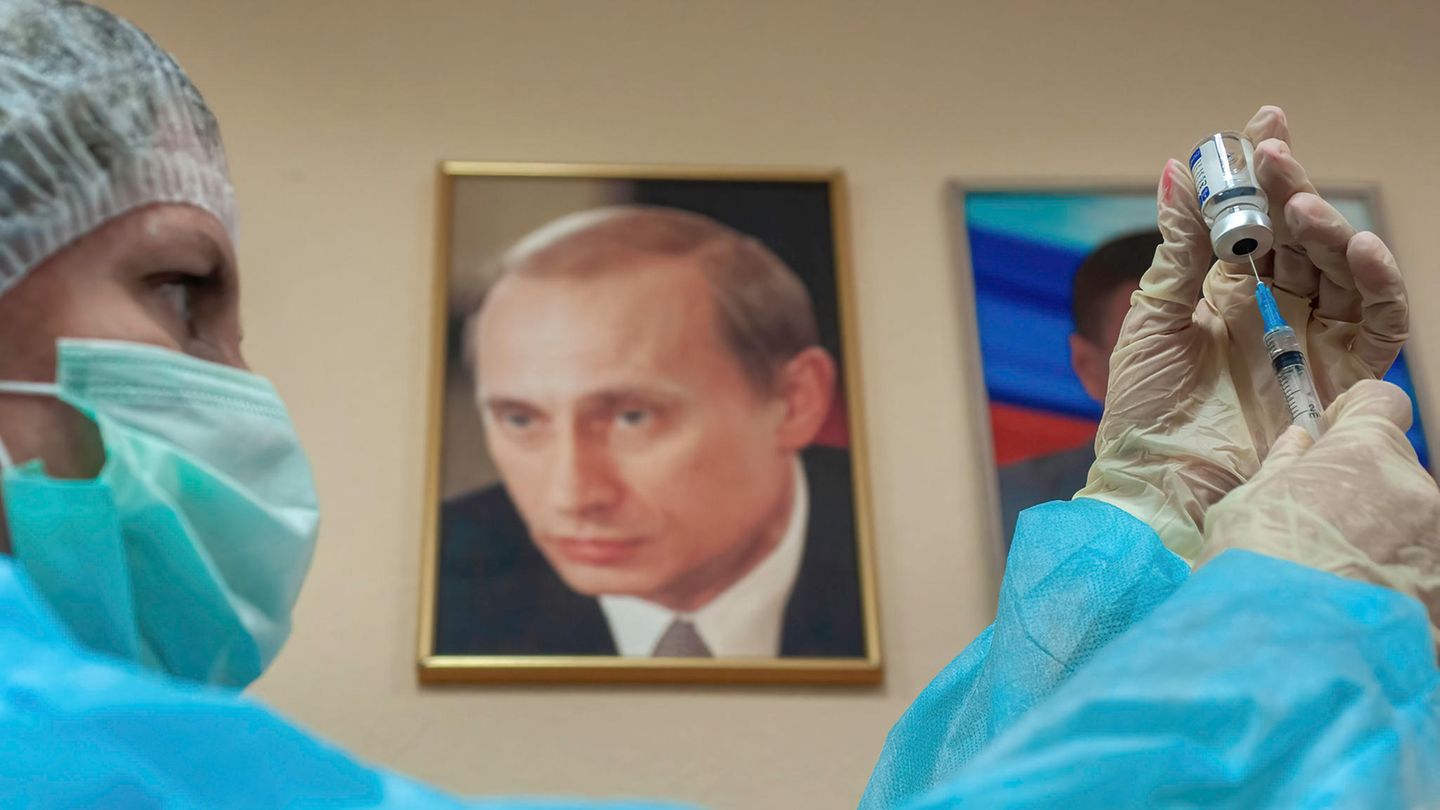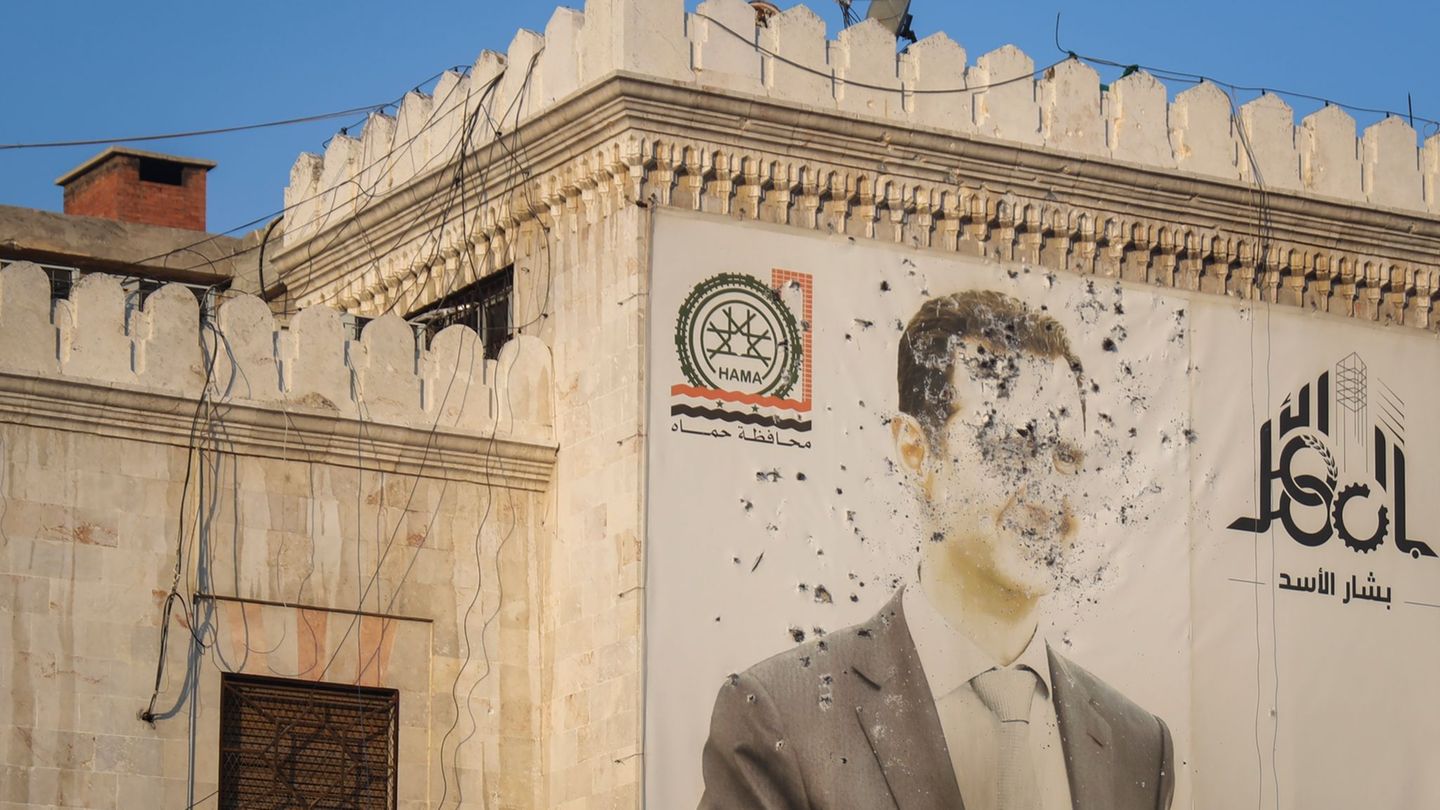In the race for the corona vaccines, the Kremlin tied up its seven-mile boots and approved its Sputnik V vaccine early – despite a lack of scientific evidence. The vaccine became an export miracle. But many open questions are still unanswered.
The news came in a clap of thunder. Because when the world was still waiting impatiently for a saving corona vaccine, Russia achieved a breakthrough with Sputnik V, albeit a dubious one. Exactly a year ago (August 11), head of state Vladimir Putin announced in person: For the first time in the world, a vaccine against the corona virus had been approved. However, the researchers did not provide any scientific evidence for the effectiveness of the agent, which was developed in record time. There are still unanswered questions. What remains is a widespread distrust that Moscow has not erased to this day.
Quite a few in Russia felt like guinea pigs because the important test phase III with tens of thousands of volunteers did not begin until the vaccine was released. According to expert opinion, it is only with it that it can be found out whether a product really works reliably and is safe. Moscow’s rapid action has therefore met with international criticism from scholars. But Russia wanted to win the race for a vaccine.
The mistrust remains
In the past few months, few weeks have passed in which the state direct investment fund RDIF did not announce any cheers. Sputnik V is now registered in 69 countries, explained the fund that markets the vaccine abroad. Customers include the states of the ex-Soviet republic as well as many in South America, Turkey, Iran and India.
Russia also wants to gain a foothold in the lucrative market in the EU. But it is currently uncertain whether it will work. The European Medicines Agency (EMA) has been testing the vaccine since the beginning of March. Your judgment will decide whether the EU Commission will then issue the official approval for placing on the market in the next step.
“So far, the manufacturer has not been able to provide enough valid data to prove safety,” said EU Commission President Ursula von der Leyen to the editorial network Germany (RND) a few days ago. That raises questions. The comment should have been annoying not only for the manufacturer, but also for the authorities in the EU countries Hungary and Slovakia. You had already approved Sputnik V for use some time ago, even without the EMA’s green light.
Political calculation?
However, there is also a suspicion that approval in the EU is being delayed for political reasons and not just because of a lack of data. Bavaria’s Prime Minister Markus Söder (CSU) had already asked at the end of May via “Bild am Sonntag” that the Sputnik V proceedings must be accelerated. “It must not be dawdled for purely ideological reasons,” said the CSU politician.
In addition to Mecklenburg-Western Pomerania, Bavaria is also one of the federal states that have secured purchase options for the Russian vaccine. Most recently, the construction of a production facility by the company R-Pharm Germany in Illertissen in the Neu-Ulm district was planned. But the negotiations seem to have stalled. So far, according to reports, there is only one declaration of intent – the talks about a real contract have been initiated – nothing more so far.
Russia repeatedly warns against politicizing the question of approval. Moscow itself does not allow any foreign vaccines in its own country. According to the Kremlin, you have enough of your own inoculants.
There is a lack of transparency
Moscow usually shows little interest in transparency when it comes to its international business with Sputnik V. In the spring, independent Russian media calculated that only a fraction of the promised doses had actually been delivered. Most recently, the sovereign wealth fund admitted delivery bottlenecks. However, these issues should be fixed this month, the fund promised. From September the world’s largest vaccine manufacturer, the Serum Institute in India, is expected to deliver over 300 million doses per year. Moscow has contracts for the production of its vaccine in 14 countries.

But even in the gigantic empire itself it stalled. There have been reports of people having to wait for weeks in some regions. In contrast, when the mass vaccination began in December, the Muscovites were even able to have themselves injected into shopping centers.
But there was no rush. Politicians only half-heartedly campaigned for immunization. Putin delayed vaccination for months, only to be administered a vaccine in March without a camera. He recently revealed that he was getting Sputnik V. The advice to refrain from alcohol for 52 days around a vaccination became a PR disaster. This was the only thing that was discussed heatedly for days.
Read more:
– “Sputnik V, we have a problem”: Studies. Results on the vaccine remain contradictory. Is the approval wobbling?
– Sputnik V: How good is the vaccine from Russia really?
– Sputnik V is said to be Russia’s latest export coup – the country itself is hesitant to vaccinate, however
– “Heilmittel Sputnik V”: How Russia is making policy with vaccines




